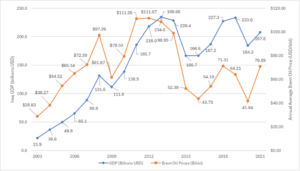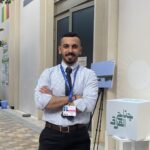The 29th United Nations Climate Change Conference (COP29), held in Baku, concluded with a mix of progress and controversy, as highlighted by Othman Kareem. Delegates from nearly 200 nations agreed on a $300 billion annual climate finance target, far below the $1.3 trillion deemed necessary by UN officials. Heated debates over carbon credit trading and the phasing out of fossil fuels reflected deep global divisions, with developing nations voicing dissatisfaction over insufficient funding and ambiguous commitments. For Iraq, the conference spotlighted its struggle to balance climate goals with its economic reliance on oil revenues, underscoring the need for international collaboration and robust funding mechanisms.
The 29th United Nations Climate Change Conference (COP29) wrapped up on November 24 in Baku, Azerbaijan, after extended and intense negotiations among nearly 200 nations. While the event showcased a blend of progress and challenges, the outcomes left both optimism and dissatisfaction in their wake. Discussions centered on pressing climate issues, including the need for increased climate finance, carbon credit trading mechanisms, and commitments to phase out fossil fuels, all of which underscored the growing urgency of global climate action.
A New Climate Finance Target Sparks Debate
One of the most critical outcomes of COP29 was the adoption of the New Collective Quantified Goal on Climate Finance (NCQG), replacing the $100 billion annual target set in 2009. After prolonged debates, nations agreed on a $300 billion annual climate finance goal to support mitigation and adaptation efforts in developing countries. However, this figure fell short of expectations for many poorer nations, with negotiators from Asia and Africa criticizing it as “too little, too late, and too ambiguous.”
UNFCCC Executive Secretary Simon Stiell emphasized the need for $1.3 trillion annually to combat the worsening climate crisis, describing the goal as an “insurance policy for humanity.” Yet, the agreed figure—predominantly a mix of grants and concessional loans—raised concerns among developing nations over the risk of increased debt burdens and limited funding for essential adaptation projects across energy, agriculture, and water sectors.
Political tensions, global polarization, and current geopolitical uncertainties have exacerbated divisions, with one Indian negotiator describing the conference’s final document as “an optical illusion.” Meanwhile, UN Secretary-General António Guterres expressed dissatisfaction with the outcomes but referred to the agreement as “a foundation to build upon.”
One key outcome of the conference was the decision on carbon credit trading to curb greenhouse gas emissions. The agreement will allow wealthy nations to meet their carbon neutrality targets by funding green projects in African and Asian countries rather than reducing their emissions. Opinions on this arrangement are divided: while some developing nations welcome green project funding as an opportunity for economic growth and job creation, environmental activist Greta Thunberg and many others argued that the conference allowed oil and gas nations, including Azerbaijan, the hosting country, to continue polluting while engaging in what is further called “greenwashing.”
Iraq’s Balancing Act: Climate Commitments vs. Economic Reliance on Oil
Iraq, a key participant at COP29, faced the challenge of reconciling its dependence on oil revenues with its climate commitments. As OPEC’s second-largest oil producer, Iraq relies on oil for over 90% of government revenue, making a swift transition to renewable energy difficult without risking economic stability. President Abdul Latif Jamal Rashid reiterated Iraq’s support for global climate goals while resisting proposals to phase out fossil fuels, citing the country’s heavy reliance on oil exports to fund public services and infrastructure.

Iraq faces a significant challenge in balancing its economic reliance on oil revenues with its climate commitments under the Paris Agreement. According to the UNDP, Iraq has strengthened its climate commitments in its updated Nationally Determined Contributions (NDC). The conditional mitigation target has been raised to 15% compared to business-as-usual (BAU) scenarios, up from 13% in the initial NDC, while the unconditional target doubled from 1% to 2%. To meet these goals, the country plans to install 12 GW of renewable energy capacity, relying significantly on private sector investments. However, achieving these targets and transitioning to a low-carbon economy will require an estimated $100 billion in investments in solar and wind energy, coupled with reforms to enhance energy efficiency and reduce flaring, which are steps toward a sustainable future. Achieving this balance will require robust international
President Rashid reiterated Iraq’s commitment to international climate agreements, particularly the Paris Agreement. During the conference, Iraq received $30 million from the Green Climate Fund as part of its efforts to tackle climate challenges.
Future Prospects and Concerns
While COP29 marked some progress, the conference underscored significant global divisions over responsibilities and funding mechanisms. Political tensions and geopolitical uncertainties compounded these challenges, with some describing the final agreements as inadequate. UN Secretary-General António Guterres acknowledged the limitations but referred to the outcomes as “a foundation to build upon.”
For Iraq, the outcomes necessitate a strategic reevaluation of project financing, focusing on aligning national initiatives with climate adaptation and mitigation goals. The $30 million received from the Green Climate Fund represents a step forward, but broader access to climate finance will be crucial for Iraq’s low-carbon transition.
As COP summits continue to grapple with complex negotiations, Iraq’s situation reflects the broader challenge of balancing economic growth with urgent climate action. With global funding frameworks still in flux, the road to meaningful and equitable solutions remains uncertain.
![Iraq Climate Change Center [IC3+]](https://iraqclimatechange.org/wp-content/uploads/2024/06/logo2.png)

